Jana al-Issa | Hassan Ibrahim | Hani Karazi
The United Nations is preparing to launch early recovery projects in Syria, aiming to attract supporters such as Gulf Arab states. This comes after the European Union initiated its own projects in this regard several years ago.
Despite the ongoing debate on the necessity of these projects, considering them essential to pull Syrians out of their economic reality and move towards development instead of emergency response, there are suspicions about their political investment and bypassing UN resolutions that require a political solution before reconstruction.
The concept of early recovery was introduced a few years ago, when there was no political solution in sight for Syria that would open the door for reconstruction. The urgent needs imposed by the living and economic reality of Syrians and the destruction of infrastructure in the most important sectors due to the war called for such initiatives.
During the dialogue day with Syrian civil society organizations at the eighth session of the Brussels Conference held on April 30, many scheduled and side sessions discussed the issue of early recovery in various sectors.
Prior to the conference discussions, the United Nations announced its intention to launch a special program for early recovery in Syria, aiming to implement projects in several sectors before next summer.
In this lengthy report, Enab Baladi discusses with experts the reasons behind the desire of active parties—states and organizations—to push towards working on early recovery projects, as well as the positives, negatives, and risks of this approach, highlighting the extent of a suitable environment for establishing these projects in Syria.
Needs call for early recovery projects
UN fund and European focus
The United Nations intends to launch its special early recovery program in the coming months, funding projects through establishing a fund that offers some non-traditional donors like Gulf countries a safe and legitimate mechanism under an international umbrella. This mechanism allows them to provide aid that they currently cannot due to Western sanctions on the Syrian regime.
The fund could allow organizations and banks, such as the World Bank, to provide aid allocated for Syria and earthquake victims, which has not been delivered yet due to sanctions.
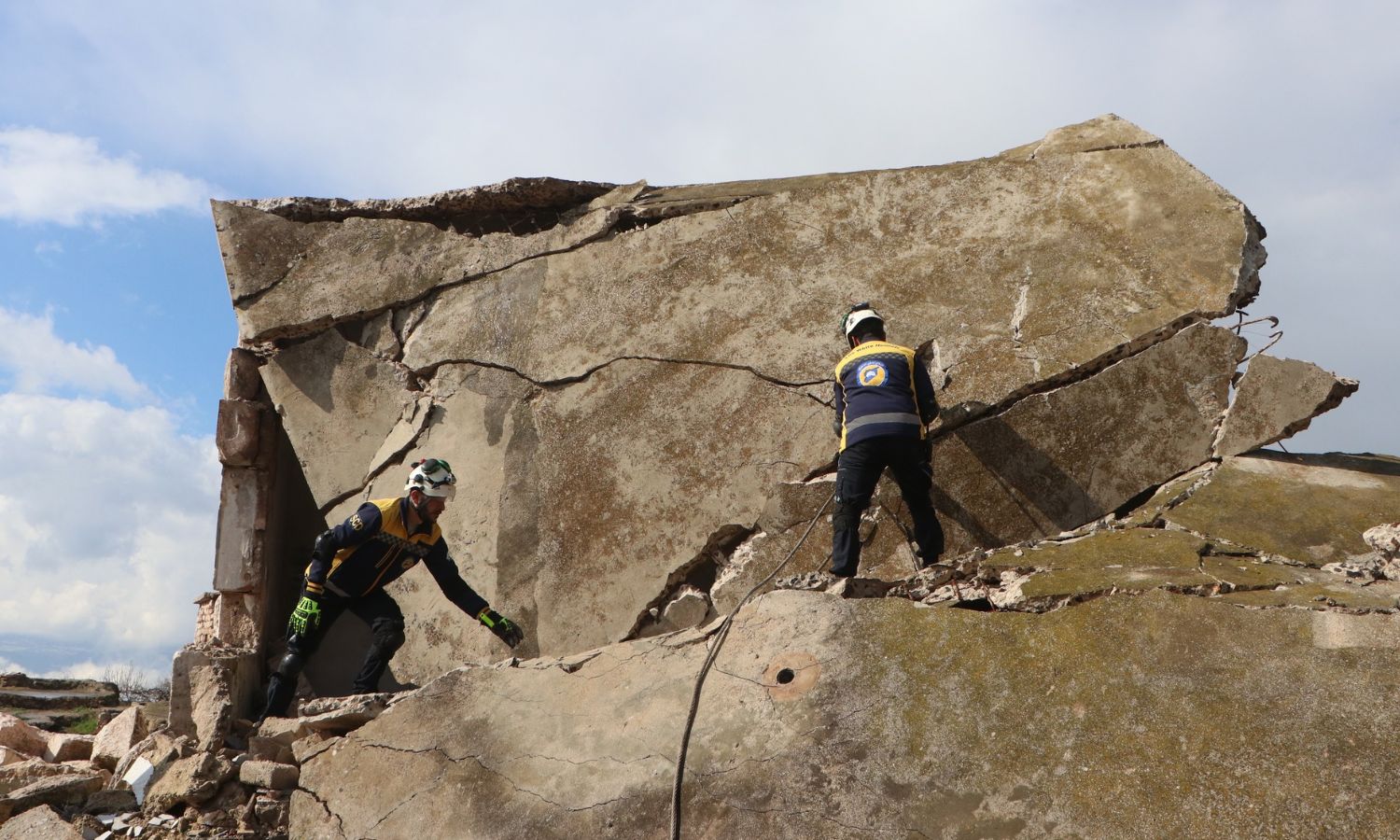
Syria Civil Defence teams provide services in water, sanitation, and infrastructure rehabilitation in northern Syria – February 10, 2024 (Syria Civil Defence)
UN channel
Adam Abdelmoula, the UN Coordinator for Humanitarian Affairs in Syria, stated in an email to Enab Baladi that the fund aims to promote a cooperative approach among humanitarian actors (who have spent hundreds of millions on fragmented individual early recovery activities without achieving significant impact). It also aims to provide bilateral donors who cannot direct resources to Syria due to sanctions with an alternative channel under multilateral sponsorship through the United Nations.
The fund seeks to allow donors, the United Nations, and non-governmental organizations to jointly decide what should be funded and where, while continuing to focus on the main sectors of early recovery (health, education, water, sanitation, hygiene, livelihoods, and electricity), according to Abdelmoula.
Abdelmoula views the early recovery strategy that the United Nations intends to work according to as a humanitarian initiative. It aims to expand the humanitarian community’s work scope in some key sectors that could lead to transformational change, such as reducing the burden of humanitarian cases, contributing to creating conditions that allow the return of refugees and internally displaced persons, among others.
UN early recovery
The United Nations Development Programme (UNDP) defines early recovery as “an approach that addresses recovery needs that arise during the humanitarian response phase by using humanitarian mechanisms that align with development principles. This approach enables people to benefit from humanitarian work to seize development opportunities, build resilience, and establish a sustainable recovery process from the crisis.”
A red line?
A research paper published by the Friedrich Ebert Foundation in April 2023 indicated that France and the United States stood against increasing early recovery aid to Syria in 2021, considering it as reconstruction, which is rejected before reaching a credible political transition that aligns with UN Security Council Resolution 2254.
Prepared by researchers Malik al-Abdeh and Lars Hauch, the paper titled “Early Recovery Assistance in Syria: Balancing Political and Humanitarian Goals” noted that the trend towards early recovery aid has not been a red line in Syria in recent times due to changing conditions.
In November 2021, the US Treasury Department issued clarifications specifically expanding permits for non-governmental organizations to engage in early recovery activities and transactions in Syria for the first time.
Examples of these new exemptions include restoring health services, rehabilitating schools, renewing mills, protecting cultural heritage sites, purchasing refined oil of Syrian origin for use within the country, and engaging in “certain transactions” with elements of the Syrian government.
The term early recovery carries ambiguity in its interpretation, with no clear consensus on its definition in humanitarian circles, as mentioned in a report by the Operations and Policy Center. Early recovery aid can be viewed as falling between reconstruction on one hand and regular UN aid that provides food, water, shelter, and sanitation services on the other.
The focus of international organizations and entities on early recovery projects and achieving greater impact in them stems from several reasons, according to Ayman Dasuki, a researcher in political economy and local administration in Syria at the Omran Center for Strategic Studies.
Dasuki told Enab Baladi that there are those who see the funding allocated for the Syrian crisis is continuously declining with the emergence of new crises. Therefore, the remaining funding must be managed wisely and sustainably to address the Syrian crisis’s humanitarian and economic challenges.
However, others view early recovery as a tool that can be employed to achieve political goals, varying by each party. Some see it as a tool to bypass sanctions imposed on the regime, others see it as a negotiating tool with the regime and its allies, and some consider it a means to push the stalled political negotiation process, according to Dasuki.
Three differences between early recovery and reconstruction
- The responsibility for planning and implementing reconstruction rests with the state, while relief organizations handle early recovery, whether centrally controlled by an administrative body like the United Nations or by individual organizations.
- Early recovery is a form of humanitarian aid, while reconstruction is not; reconstruction can involve concessional loans from individual organizations or multilateral institutions like the IMF or World Bank. In contrast, early recovery is a type of humanitarian assistance that does not require later repayment.
- The priorities of early recovery depend on humanitarian needs, similar to other forms of humanitarian aid, whereas reconstruction does not necessarily follow this principle.
Source: Operations and Policy Center (OPC)
Towards the Gulf, No disputes with Europeans
The UN fund, to be launched soon, will provide a safe and legitimate mechanism under an international umbrella for some non-traditional donors (such as Gulf countries), who usually prefer to offer aid directly to the government but cannot do so due to sanctions, to provide assistance to the people.
Adam Abdelmoula, the UN Humanitarian Coordinator in Syria, told Enab Baladi that traditional donors (including the United States and the European Union) have been funding early recovery activities throughout Syria for years. Between January 2022 and October 2023, the UN and its partners spent around USD 800 million on early recovery interventions, covering nearly all humanitarian sectors, according to Abdelmoula.
In contrast, non-traditional donors, especially the Gulf Cooperation Council (GCC) countries, have not significantly contributed to early activities despite their support for earthquake victims, according to the UN official.
This time, the goal is to limit early recovery interventions to a few strategic and transformative sectors (health, education, water, sanitation, electricity, and livelihoods) across all regions of Syria.
The planned trust fund for early recovery in Syria aims to:
- Ensure the spending of early recovery funds on these sectors over a medium-term period of five years, with the hope of significantly reducing needs in those sectors.
- Allow non-traditional donors to join traditional donors in their efforts to accelerate early recovery.
Adam Abdelmoula, UN Humanitarian Coordinator in Syria
The establishment of this fund raises questions about potential conflicts between traditional and non-traditional donors (Gulf countries) regarding early recovery in Syria.
Researcher Ayman Dasuki predicted that no such conflicts would arise, given that the fund is a UN mechanism alongside other ongoing humanitarian response mechanisms for the Syrian crisis. He believes that it offers options for donors and reduces the likelihood of conflict among them. Moreover, the UN fund will take time to develop its mechanisms and demonstrate its results, and the fund’s operation may evolve to become the central channel for various donors to finance the response to the Syrian crisis—or it may fail, according to his opinion.
UN Coordinator Abdelmoula also commented on these questions, stating that no objections are expected from the European Union or the United States to the inclusion of non-traditional donors in their efforts to enhance early recovery across Syria, regardless of the controlling party.
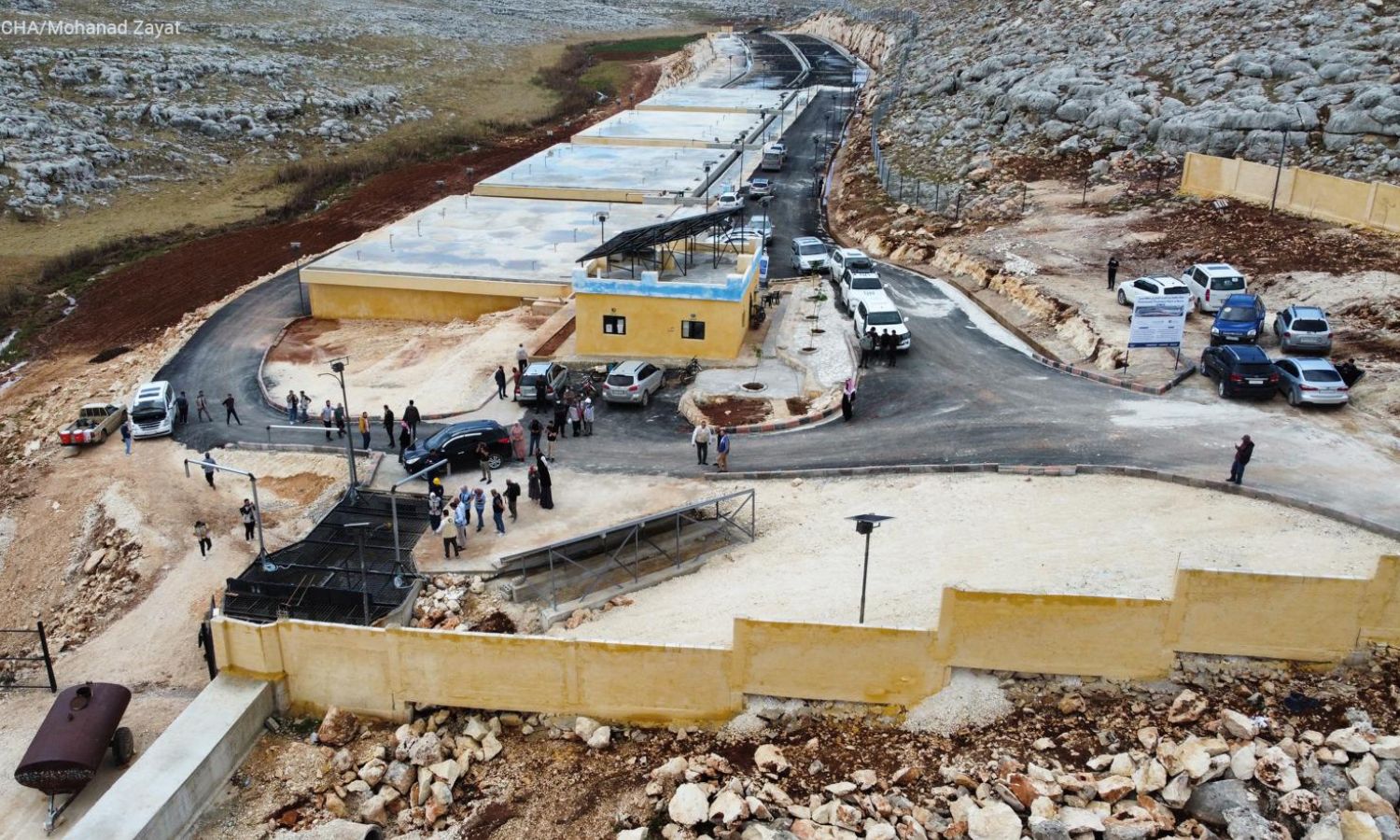
A sewage treatment project funded by UNICEF and SCHF, implemented by IHR and Binaa for Development in Idlib – May 14, 2024 (CHA/Mohanad Zayat)
Politically immature parties
Unsuitable environment
The recent talk about early recovery comes at a time when the situation in Syria is becoming increasingly dark and complex, with no signs of a near-term breakthrough in a country that has changed significantly after 13 years since the Syrian revolution began. No sector remains unchanged—whether politically, economically, militarily, or humanitarianly. Over those years, the country has been divided into areas of control shared by four entities: the regime, the Autonomous Administration, the Interim Government, and Hayat Tahrir al-Sham.
In addition to these four controlling entities, there are 830 foreign military sites in Syria, under the influence of foreign powers and entities on the ground, including the US-led International Coalition, Russia, Turkey, and Iran, as of July 2023.
The Syrian citizen alone faces waves of rising prices and is unable to secure his family’s basic needs amidst the deteriorating value of the Syrian pound against foreign currencies, with no solutions to rescue him from his successive crises. Salary increases have become a burden due to the subsequent doubling of commodity prices.
The latest UN estimates indicate that 16.7 million people need humanitarian assistance in Syria, with signs suggesting that 2024 will see continuous deterioration in humanitarian and economic indicators in the country, making the economic situation increasingly dire and a primary driver of needs.
Eighty percent of the Syrian population will need some form of humanitarian assistance in 2024, and about 55 percent of the population, or 12.9 million people, are food insecure, with 3.1 million of them severely food insecure.
Societal rift
Dr. Zaidoun al-Zoubi, a specialist in quality management and governance, believes that the political, economic, and social environment in Syria is not suitable for early recovery projects, despite their importance. The concern lies in the immaturity of the political parties to understand the importance of linking early recovery projects across all geographic areas.
Speaking to Enab Baladi, al-Zoubi stressed the importance of not viewing Syrian geographies as mini-states, isolated and divided. He argued that it is not correct to rely on the belief that Syrians still feel they belong to one community because the division within society is severe.
If early recovery projects do not aim to bridge the societal rift, connect economies, reduce division, and mitigate hate speech, and if they are not supported by political maturity, they will not be beneficial.
Dr. Zaidoun al-Zoubi, Specialist in Quality Management and Governance
Aid politicization is the core problem
Dr. Karam Shaar, director of the Syrian Program at the Observatory of Political and Economic Networks, argues that all of Syria needs early recovery assistance and that waiting for a political solution is not necessary. He believes the core problem is that the United Nations seeks to implement recovery projects in a way that does not consider the Syrian context, allowing systematic exploitation of aid by the Syrian regime, which is the crux of the problem.
Shaar explained to Enab Baladi that early recovery projects should be implemented in a way that respects the Syrian context, considers people’s rights, and ensures aid reaches those in need without regime politicization.
The Syrian regime has a history of misappropriating aid and using it as a weapon, either by distributing it only in loyal areas, manipulating the exchange rate of aid funds, or employing aid workers and procuring from close affiliates, among other forms of corruption.
This has led donor governments to refrain from supplying non-essential materials, such as early recovery aid, making the implementation of early recovery programs in regime-controlled areas increasingly difficult due to US sanctions, which deter donors and hinder aid delivery.
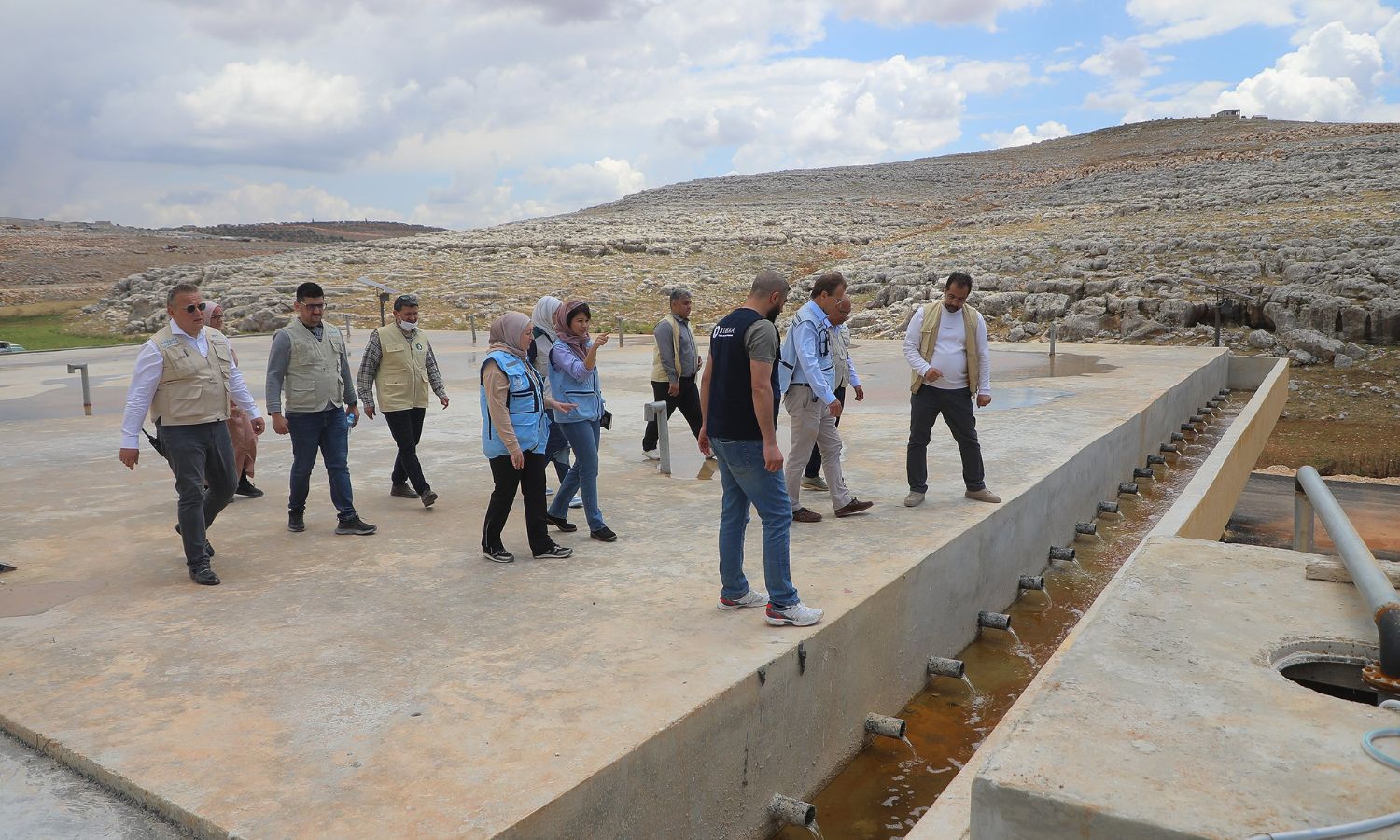
A sewage treatment project funded by UNICEF and SCHF, implemented by IHR and Binaa for Development in Idlib – May 14, 2024 (CHA/Mohanad Zayat)
Conditions for positive outcomes
While there is a consensus on the necessity and benefit of increasing projects that go beyond emergency aid to address the growing humanitarian needs in Syria amidst the ongoing conflict, a research paper published by the Friedrich-Ebert-Stiftung found that donor acceptance of this approach has been lukewarm at best. Only a limited number of projects can be classified as recovery projects.
From a humanitarian perspective, early recovery may provide a real opportunity to deliver improved essential services and enhance public health and education capacities. However, from a political perspective, the risks of striving for early recovery cannot be underestimated.
Positive from a development perspective
Economic researcher Adham Qudaimati said that early recovery relies on rehabilitating infrastructure and harnessing human capital, enabling it to engage in the economy at the start of its recovery across all economic sectors, playing an active role in building a future strong and resilient economy based on genuinely effective institutional economic foundations.
Qudaimati explained to Enab Baladi that if early recovery is implemented correctly, economic activity will align toward the right direction, with rising indicators across various sectors, ultimately benefiting the Syrian citizenry.
Early recovery projects can diminish the power of a single person over the economy and curb the regime’s monopolization through illicit trade, cronyism, and extortion, though implementing early recovery in Syria remains unfeasible under the current regime.
Political researcher at the Omran Center for Strategic Studies, Maen Talaa, indicated early recovery could have a positive aspect if managed from a developmental and reconstructive perspective.
Talaa told Enab Baladi that local organizations in northwestern Syria play a crucial role in coordinating support and managing early recovery projects, treating northern Syria as a single entity rather than segregated areas.
Abdul Azim al-Mugharbel, a research assistant at the Jusoor Center for Studies, spoke similarly about the positives of early recovery. He explained that it lies in creating suitable conditions to kick-start economic development and restore key services, potentially leading to some political solutions. Early recovery would help solve long-term problems contributing to crises.
Al-Mugharbel told Enab Baladi that early recovery also helps people transition from relying on humanitarian aid to economic development, encourages investment in the region, creates jobs, improves incomes, and lays the groundwork for future reconstruction.
Ultimately, early recovery directly improves the humanitarian and economic conditions for Syrians, according to al-Mugharbel.
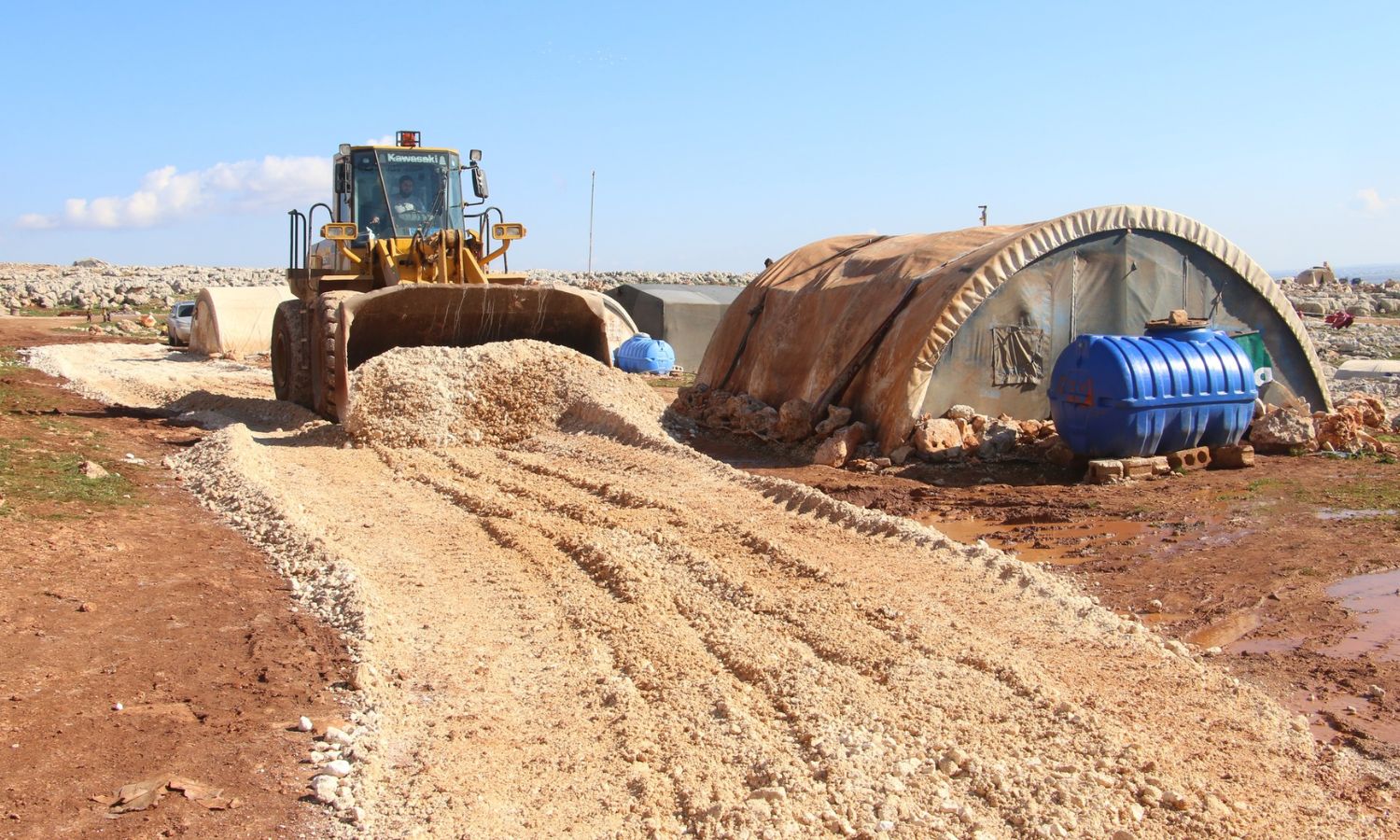
Syria Civil Defence teams provide services in water, sanitation, and infrastructure rehabilitation in northern Syria – February 10, 2024 (Syria Civil Defence)
Political opportunities for the regime
Despite the many positives of early recovery projects, they also entail numerous negatives, according to several experts.
Researcher Maen Talaa mentioned that early recovery is crucial but current realities and talks of rapprochement with the regime cannot be isolated from the humanitarian dimension fundamental to early recovery. Thus, the international community heading towards early recovery may bypass all national requirements, treating Syria’s issue as trivial and starting early recovery, enhancing the regime’s political legitimacy. This is highly dangerous, he stated.
Talaa added that early recovery could elevate the regime’s roles, shifting from cross-border humanitarian aid mechanisms to cross-line aid delivery, giving the regime substantial control. This, if realized, would contribute to Syria’s further division, exploiting early recovery projects to sideline the political solution, accountability, and refugee return issues.
A tool for Assad’s extortion
The Syrian regime has used early recovery as an extortion tool for gains. In July 2021, the regime stipulated including early recovery in the UN Security Council Resolution 2642 issued on July 9, 2021, in exchange for its ally Russia’s approval to renew the cross-border aid mechanism through the Bab al-Hawa border crossing.
Syrian President Bashar al-Assad also leveraged early recovery as another extortion tool concerning refugees, with Foreign Minister Faisal Mekdad linking the return of Syrians to supporting early recovery projects to rebuild infrastructure.
During the meeting of the Arab Ministerial Liaison Committee in Cairo in August 2023, Mekdad highlighted the Western countries’ obstruction of early recovery projects, politicizing the issue. Hence, coordinated Arab efforts are crucial to push for these projects and secure their funding.
In June 2023, al-Assad met with UN Under-Secretary-General for Humanitarian Affairs Martin Griffiths in Damascus. The presidential statement from the meeting noted efforts to mobilize support for early recovery projects related to refugee return and their requirements, emphasizing rebuilding damaged infrastructure in the returnees’ villages and cities, rehabilitating service facilities in various forms, and implementing necessary early recovery projects for their return.
Research assistant Abdul Azim al-Mugharbel warned that early recovery could turn negative if al-Assad exploited it to enhance his legitimacy and blackmail Western countries while bypassing sanctions imposed on him and directing part of the project funds into reconstruction efforts, which are not part of early recovery.
He added that early recovery projects might be narrow in scope, not significantly improving living conditions in Syria, with recovery speed varying among target areas and the potential for non-critical projects to receive support over significant ones. These negatives make early recovery work against Syrians’ interests and in favor of the regime.
if you think the article contain wrong information or you have additional details Send Correction
النسخة العربية من المقال
-
Follow us :
Most viewed
- Al-Sharaa and Abdi reach agreement on merger of SDF into Syrian state
- Syrian Defense Ministry appoints "Abu Amsha" as Hama Brigade commander
- Turkey confirms continuation of its operations in northeastern Syria
- No financial flows to Syria despite partial lifting of sanctions
- Governor of As-Suwayda signs understanding agreement with al-Hijri: Key details unveiled












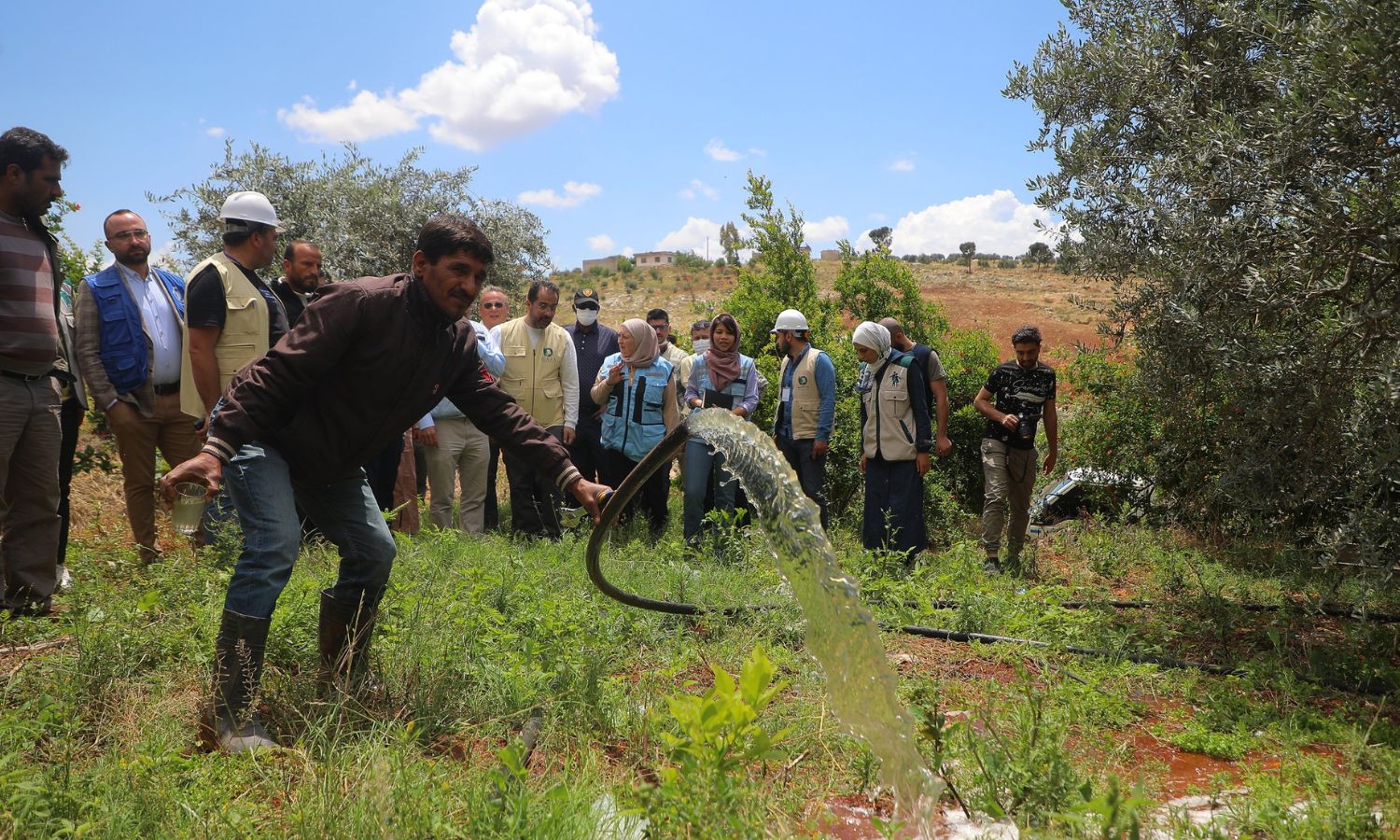
 The UNICEF and SCHF-funded sewage treatment project, implemented by IHR and Binaa for Development in Idlib - May 14, 2024 (CHA/Mohanad Zayat)
The UNICEF and SCHF-funded sewage treatment project, implemented by IHR and Binaa for Development in Idlib - May 14, 2024 (CHA/Mohanad Zayat)





 A
A
A
A
A
A
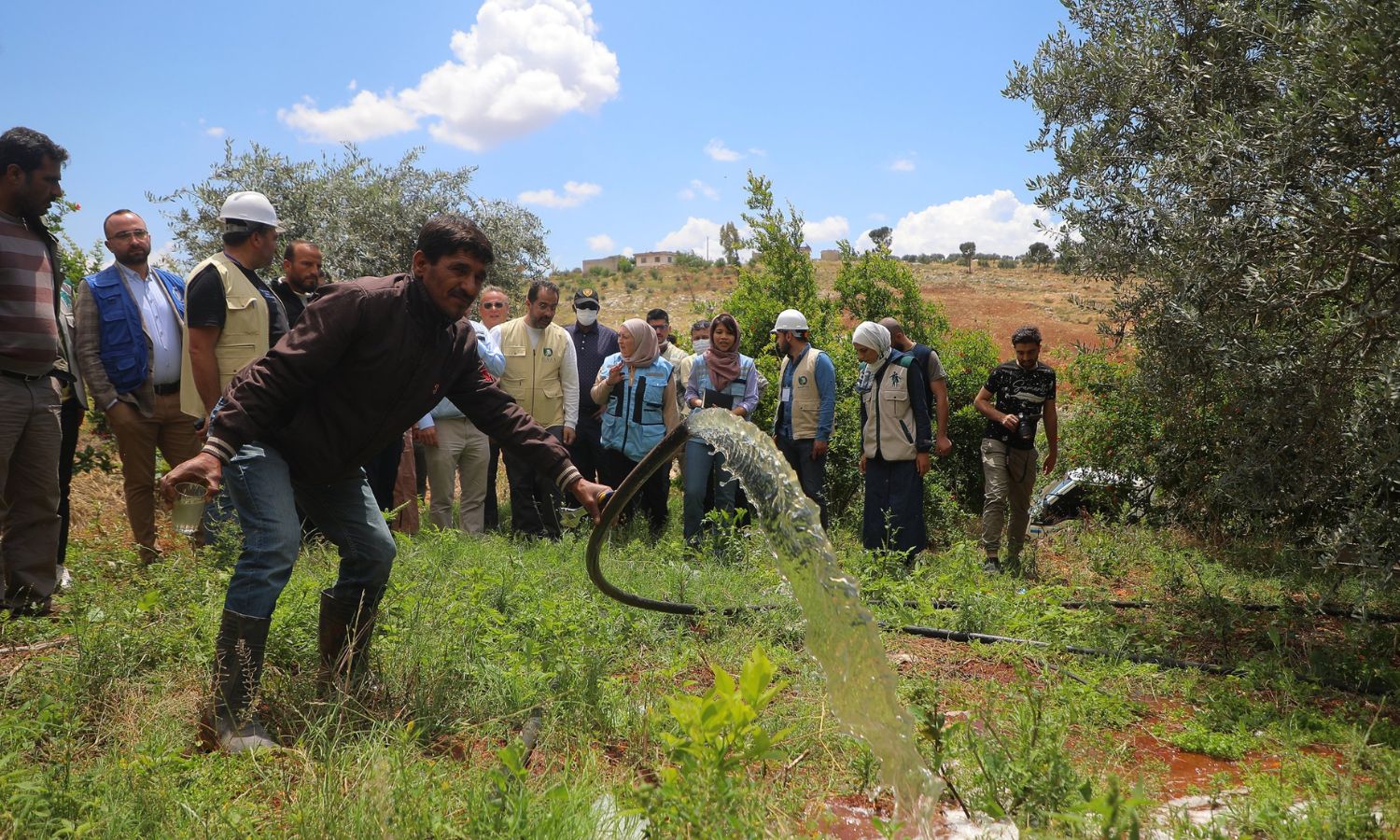


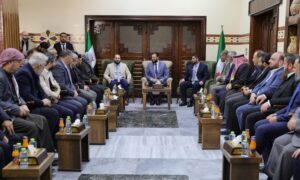
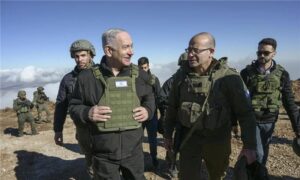
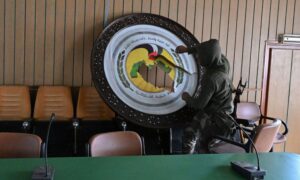
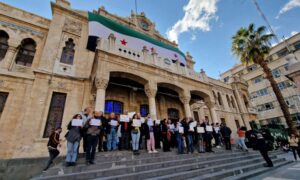
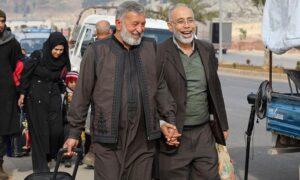
 More In-Depth
More In-Depth